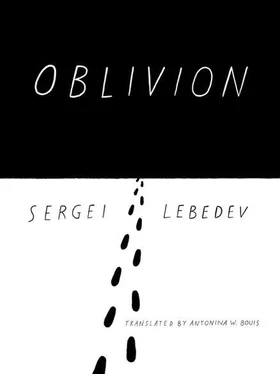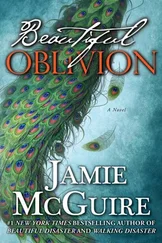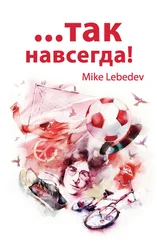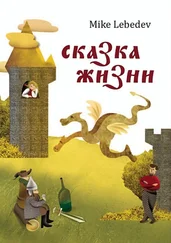You take a sip of that wine and the woman you met and fell in love with here, the soft bonds of bed sheets, doubly salty sweat, from the seawater, the reddish pollen of the shameless palm flowers on her skin—all this recedes, and desire itself suddenly turns into an almost sexless tenderness, the sense that she is merely the vessel of her life, inaccessible to you. You look not at her anymore but at how her life lives inside her, perhaps unfamiliar to her as well; how the blood ebbs and flows, the blush grows, the hair curls. This quotidian nature of her body becomes precious and necessary; you want to take her hand to feel her pulse: the beating of the heart that was conceived in her mother’s body, appearing out of nothing, out of a few cells.
You know that no one was ever closer to you than she is; but even she is not close. They bring the fish, dorade for her, swordfish for you, because swordfish does not resemble the flesh of fish; it has large fibers, it looks like bleached beef, and that is why you can eat it. You could tell her why you turn away from her plate, drink wine, and stare at the ocean, and she—sensitive and understanding—would empathize, but it would be only a story; there is the final definitiveness of experience that cannot be shared.
So you watch the fishermen on the beach, watch their rods tremble and bend when they drag the fish to shore. Farther along the transparency moves into darkness and then into color: there is a whirlpool, and the water spins slowly, thickly, and light circles float on the surface, like traces of drops fallen into hardening molten glass—the grayling snatching insects.
The summer is coming to an end, the early darkness thickens, the mornings grow cooler, and the winds toss the light-winged dragonflies onto the water, as if sweeping out rubbish—skins, wings—from the space between window frames; the grayling is the fish of death, the river hunter—it swallows up flies, mosquitoes, dragonflies, so that soon it can go downstream and huddle in the holes in the riverbed, to lie dormant until spring; the rainbow wings splash, and the rainbow bodies of the fish flash through the water.
A pause. A pot steams on a rod, fish soup cooking; grayling is tender, it should not be overcooked. As a treat, we have raw fish, rubbed with salt and pepper and marinated under a press to release its juices. But then you follow the route along the river, the path leaps from bank to bank, and in one of the fords someone steps on a human skull trapped among the stones, covered with slimy green weeds.
A skull. A skull in the water. Higher upstream, we see a crumbling cliff and a black peaty carcass. In the peat there are more skulls, bones, flesh half-decayed, flabby like berries that spent the winter under snow; a camp cemetery that was being washed away when the river changed its course and began a new tributary. And you vomit the fish, that flesh is the grayling meat, and now you are a cannibal, all of you are cannibals because you ate that fish, drank that water, in which the dead are dissolved. You threw up, but the uncleanliness remains, it is in your body, in your blood forever.
And now you curse the rod, the line, and the bait: a barbed hook is stuck in your lip, you swallowed the fly that is tearing up your intestines. Fish skeletons tossed into the river and human bones—you suddenly realize that you had always been a link in the food chain, your memory had been a weapon of destruction.
And then you understand that the deathly communion was not accidental. Through it, as through newly granted vision, you see your body, your memory, your fate as predestination: the inheritance of blood, the inheritance of memories, the inheritance of other lives—everything wants to speak, seeks to complete itself, to happen to the end, to be recognized and mourned.
You see and remember; this text is a memorial, a wailing wall, for the dead and the mourners have no other place to meet except by the wall of words—the wall that unites the living and the dead.
Summer days, long, expansive, like an enfilade of bright rooms; days when nothing is missing in nature and wakening comes with the dawn—summer days, the summer of life!
Autumn memory absorbs nature’s decline, the transition from volumes of foliage to the emptiness of bare forests, and this disembodiment continues, as if its strength were undermined by disease.
The darkness of winter days multiplies the lacunae of memory, confined to the circle of light from the desk lamp; you travel from one memory to the next as if from village to village in the snow, sinking, losing the road, barely hearing the guiding thread—the hum of the power lines.
The memory of spring is timid, unsure, resembling the dreams of a recovering patient, as fragile as the ice of morning frosts, unsupported by the body’s strength.
Only the memory of summer says: remember, all this has happened to you and will not be repeated, but there will be room for everything in your reminiscences; remember—here’s a blue spike of delphinium, bowing under the density of color, here are the smoky blue juniper berries smelling of tar, clean arboreal sweat, here is a butterfly flying without will, like a bit of white cloth carried by the wind; remember and it will be you: delphinium, juniper, and butterfly, they will become the rigging of your feelings and thoughts, they will help you when feeling will seek words and thought—images.
August is the month of your appearance in the world; you were born in the summer, and the world appeared summery to you. It was hot, the thermometer kept climbing; body temperature coincided with air temperature, and you must have felt the world accepting you.
August—in August you fell, climbing up on the handle of the stroller, and crashed with it onto stone; blood spurted from your smashed lips, your mouth turned into a wound, your milk teeth crumbled; you sensed pain that years later returned with the metal wires of braces retaining the metallic taste of blood; pain that deformed and paralyzed speech, as if every word was pushed through the bars of its cage.
The unspoken words when you wanted to say them accumulated in you; other children collected cars and the older ones, stamps, but you started collecting words. Just as the rectangle of a stamp held out for some the promise of another life, other countries, where fame and glory were so great and triumphant that the hero’s face radiating his portrait into space was captured on stamps, the smallest part of the world’s mosaic—so for you every word reflected the bigger life that had produced it.
Hidden beneath my childish appearance was a real and profound age of silence and life among words and conversation with words that allowed all the insights that shaped my early development.
A man whom I will call Grandfather II insisted on my birth—I called him that to myself as a child; naturally, he had a name, patronymic, and surname, but they are inessential; my receptivity accurately sensed this man’s extreme alienation, hidden by politeness. It wasn’t that he kept himself aloof, taciturn, it wasn’t about his behavior or character; he was alienated from life almost in the legal sense of the word and only as a consequence of that was he alienated from people as well. Everything that happened in the present did not involve him directly but only brushed against him—not because he was unreceptive but because he seemed to have already lived his life, his existence outlasting his destiny, and no event could touch him now; he was omitted from the blueprints of daily life as if he was being punished—left out—denied.
Grandfather II was blind. It is difficult to give a physical description of a blind man; sightless eyes not only deprive a person of one of the usual features, they create the sensation that the defect is greater than an external one, in the organs of sensation, that the blind man is lacking something more than the inability to orient himself in space.
Читать дальше












